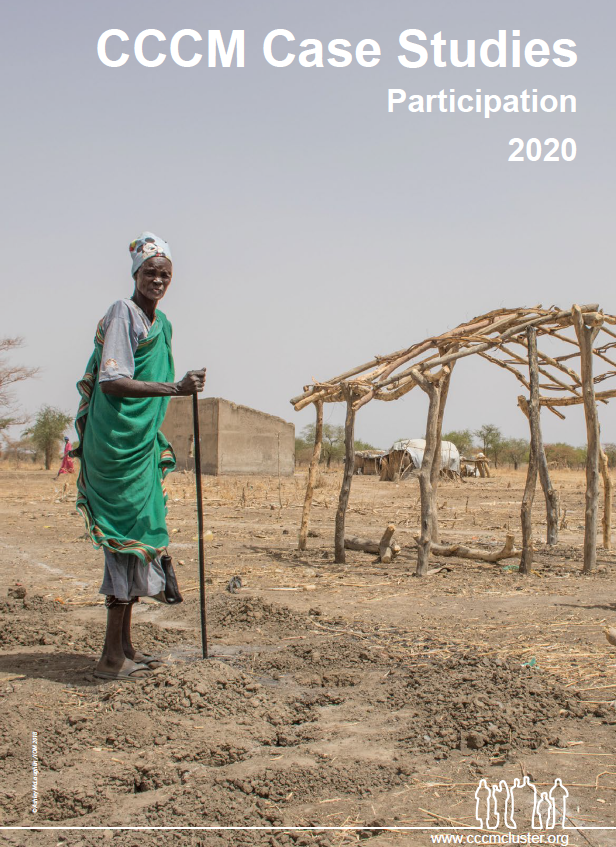The Global Camp Coordination and Camp Management (CCCM) Cluster is pleased to share with you the 2020 edition of the CCCM Case Studies.
CCCM Case Studies 2020 provides a collection of experiences and lessons learned, with concrete examples of the delivery of efficient and timely responses and a focus on adaptation to challenges presented by the COVID-19 pandemic. Ensuring meaningful participation for all groups of displaced population in decision-making processes and in camp governance structures is an essential foundation of good camp management. Participation also helps in improving humanitarian response, disaster risk reduction activities, community engagement and support, contributes to Gender-Based Violence (GBV) mitigation and ultimately ensures accountability towards affected populations. When empowered and represented, displaced communities are best placed to identify risk, prioritised needs and address challenges as part of a tailored response. This chapter’s case studies document how existing participation structures have responded and adapted, rising to the challenges of a global COVID-19 pandemic. In Bangladesh, Women’s Committees help to reduce barriers and represent the interests and needs of women and girls, including providing critical public health messaging about COVID-19. In South Sudan, CCCM agencies used creative communication approaches to reach a broad audience with COVID-19 information, and a Community Disability Committee serves as a strong advocacy structure and communication mechanism. In Afghanistan, CCCM supported the community governance structure to communicate directly with camp management and service providers.

